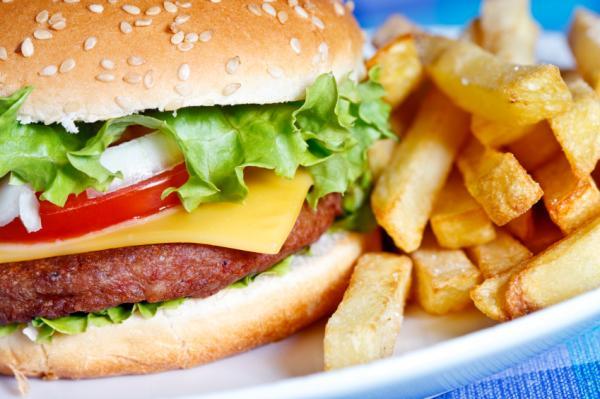Fast Company's 'Making Over McDonald's Omits Food Talk
/Years ago I owned a sales promotion business, one that created fashion and beauty-related promotions for blue chip clients. My star sales person got us involved with Virginia Slims, a client relationship that caused me to do a lot of soul searching.
Being an ardent feminist, of course I loved the Virginia Slims, independent-woman brand postion. Yet, I was considering marketing cigarettes to women. Knowing the health stats behind smoking, how could I do that?
Bottom line; I didn’t.
Last night I was reading Fast Company’s October 2010 feature Making Over McDonald’s. Under the direction of Denis Weil, McDonald’s will spend $2.4 billion to redo at least 400 domestic outposts, refurbish 1,600 restaurants abroad, and build another 1,000 in 2011. It’s the first major McDonald’s makeover since the Carter Administration.
Just now on Facebook we were tallking about my not being politically correct. The tendency gets me in trouble at time; yet most readers love my truth serum approach to writing.
 McDesigner Denis Weil lensed by Christopher SturmanIn all honesty, when I saw Denis Weil’s photo, I thought that perhaps he’s enjoyed a few too many Big Macs for any hungry guy with a hearty Midwestern appetite. Like it or not, the science around bad news food is piling up faster than Mickey D can hire a new interior decorator.
McDesigner Denis Weil lensed by Christopher SturmanIn all honesty, when I saw Denis Weil’s photo, I thought that perhaps he’s enjoyed a few too many Big Macs for any hungry guy with a hearty Midwestern appetite. Like it or not, the science around bad news food is piling up faster than Mickey D can hire a new interior decorator.
Personally, I love the new McDonald’s restaurant designs. But what about the menu?
There is almost no mention of food in the Fast Company review of the ‘new McDonald’s”.
Made in France
Writer Ben Paynter attributes the birth of McDonald’s design revolution to a French aesthetic.
On a recent overcast day at Le McDonald’s across the street from the Louvre, the restaurant is packed with the usual throng of gawky American and Russian tourists but also some workers on lunch break from the haute-couture shops around the museum district. Two curvy Parisian shopgirls gossip about the company’s face-lift over a tray loaded with staples: Big Mac, Chicken McNuggets, large fries, and a soft drink. “We only have an hour for lunch, and it’s fast and cheap,” says 26-year-old Anaïs Sidali, not quite giving credit to the new aesthetic. Yet she and her friend, Camilla Jansson, have become regulars, and they prefer to eat their fast-food bounty in the McCafé part of the restaurant, with its dark, tasteful booths and counter seating punctuated by a cluster of red and white modernist chairs. via Fast Company
The vision above reminded me that France is fighting its own challenges with obesity rates, although the government is clamping down aggressively on the French diet, before the mortality clock starts ticking. France doesn’t have the laissez-faire approach to the national health of its citizens that we have here in America.
Consider that the French government is putting photos of cancer-ridden lungs on cigarettes.
France is already making inroads against the fight against fat, and turned in an amazing 2009 BMI in its women of 23.2. American women respond that the French are smoking themselves to death, but this assertion is not true. It wouldn’t surprise me if the French Minister of Health reading the Fast Company article was tallying the caloric total and gasping ‘Mon dieu!’ at the calorie consumption of his shop girls.
Trust me when I write that the national health system in France can track the health of fast food eaters in ways not even imagined in America. Here, the health research would be tied up in the Supreme Court for 25 years. Not in France, where the government considers its benefits payouts to be a reason for monitoring the nation’s health. And monitor it, they do.
The Health Science of Fast Food
As a strategic marketing consultant reading all the new science around fast food and brain degeneration, I finished reading Making Over McDonald’s convinced that no talk about healthier food is not kosher.
The vegetarian movement isn’t making any serious inroads against McDonald’s, at least when the subject is being kind to cows. Just this week the NYTimes ran a story Argentina Sells DNA as World Demands More Beef.
Scientists say that people disassociate themselves from cow suffering when eating meat, and Harvard health researchers say eating processed red meats, not red meat, is the health problem.
Being only an intelligent lay person, I say ‘not so quick’ Fast Company. The bad news health science around fast food is really piling up. Reflecting on diseased lungs on packs of French cigaretes, I wonder if commercials like this new one in Washington D.C. could run in France sooner than we anticipate.
Consequences
The page views aren’t too shabby — 360,000 since Friday. Granted, the ending is eat-vegetarian, but could the next rendition of the public service announcement just say: Can McDonald’s Make You Stupid?
Scientists at Oxford University found that a high-fat diet damaged the short-term memory of rats in less than 10 days. After just four days, the muscles of high-fat, junk-food-fed rats were less able to use oxygen required for exercise. This condition caused hearts to enlargen. via AOC
We’re talking brain scans here, and they may be coming to a psa in your town soon — in French and in English. Anne
Researchers Propose Free Fast Food Statins to Avoid Heart Damage
Bad News Food | Obesity-Diabetes-Schizophrenia Linked
Comfort Food, Obesity and Severe Brain Degeneration



































